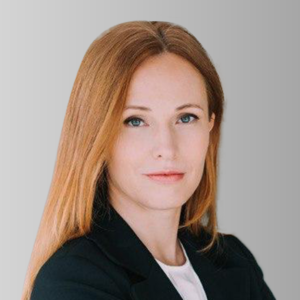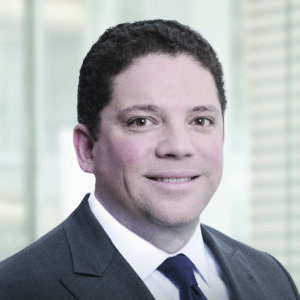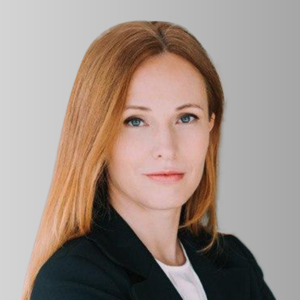
The following is an edited transcript of an interview conducted by financial advisor Darren Coleman of the Two Way Traffic podcast with tax lawyer Anna Malazhavaya of Advotax Law.
It appeared on September 6th under the title ‘What you need to know about recent tax changes in Canada.’ Advotax is a team of lawyers and tax professionals that serves individuals, businesses and real property owners with tax planning and tax-dispute resolutions involving the Canada Revenue Agency. The discussion explored everything from the capital gains inclusion rate to expanded powers of the CRA to clients asking about moving to the US.
“It’s emotional but for some the increase in the capital gains inclusion rate was the last straw as they choose to leave Canada,” said Anna who added that over four million Canadians hold more than one property which means the government’s claim that this affects only 0.13% of the population isn’t true. “People are calling me every week. The wealthiest, the most talented entrepreneurs, are leaving Canada. It’s very sad to see.”
Anna and Darren talked about this phenomenon and how the June 25th deadline made it more expensive to leave the country with what can be a hefty departure tax. They also got into RRSPs, RIFs, and bare trusts which involve putting your property in someone else’s name. Anna said while the bare trust may have been designed to catch those who are less than scrupulous, it also captures honest people and gave examples.
Here’s a link to the podcast.
https://twowaytraffic.transistor.fm/episodes/what-you-need-to-know-about-recent-canadian-tax-changes
Darren Coleman
I want your perspective and what your clients are thinking about the capital gains change we saw recently, and the deadline for people making changes. Now we’re in the new environment where the inclusion rate, or the amount of money you have to pay tax on, has gone up. And the government told us this was only going to affect 0.13% of taxpayers. Do you think their math was right?
Anna Malazhavaya
I have doubts. I’m not an economist and don’t have access to all the government stats, but I can share some stats. Capital gain may apply on the sale of your property that is not your principal residence. This includes your cottage, and your investment in rental properties.
4 million Canadians hold more than one property
More than four million Canadians hold more than one property. So four million Canadians, potentially, may be subject to that new increase capital gain rate. So that’s not 0.13%. That’s more.
Anna Malazhavaya
It’s way more. Of course, if I argued for the other side, I would say, Well, you don’t know how much money these people made on the property, and the first $250,000 of capital gain is still subject to the old rate, and that’s true. But at the same time, something tells me if these people held the property for more than 10 years that gain will be substantial. Look at how the real estate market performed in the last 20 years.
Darren Coleman
A lot of these people will be subject to the new rules. And not only that, think about people who only have one property, and let’s say, live on a farm property, and they have their house. When they sell their property, not the entire sale price will be sheltered by the principal residence exemption, but only the portion that’s required for the maintenance of their farm property. Everything in excess will be subject to capital gain and can potentially be subject to these new higher rates. Do you know how the government arrived at their number? A reasonable solution would have been to look at past taxpayer data and say, if we look at the last five or 10 years, how many taxpayers had a capital gain over $250,000? Let’s average it out over a bunch of years. But that’s not what they did. They looked at one year, 2022, and said only 0.13% of taxpayers had a capital gain of over $250,000. But that was also a negative year for stock markets globally, and a bit of a negative year for real estate equity markets everywhere. Tell me a little more about how your clients are experiencing this change.
Anna Malazhavaya
Until 2022 I probably had five people consulting me about leaving Canada. Normally, it was the other way around. We had all those talented people who wanted to bring their money, settle their life in Canada, educate their children here, build their future, build businesses, hire people. Pay taxes at 54% mind you. But this year alone, I have over a dozen new clients who plan to leave Canada and for my practice it’s a big change. People calling me practically every week, saying, I’m done. You know what? This capital gain game change. It did not affect me today. It probably won’t affect me tomorrow, but it’s the straw that broke the camel’s back.
More Canadians want to leave the country
Darren Coleman
The people who used to hire people, who used to come up with brilliant solutions, making everyone’s life better, they’re leaving Canada. Very sad to see and you’re not alone in experiencing that. I had a conversation this morning with a cross-border tax accountant and he said he’s had a surge of people looking to leave Canada, and he blames it on the tax policies which are making it less attractive for them to be here. Is it easy to just pack up and go to places like Florida?
Anna Malazhavaya
Leaving Canada became a lot more expensive. If you want to leave Canada, you are treated by Canadian law as if you sold all of your assets, even though you’re not selling anything. You keep all your assets. But the government says, Okay, fine, you want to leave Canada, but we want all the tax on the gain that you accrued to date. Some call it a departure tax, although this isn’t an official name, but it can hit you hard if you decide to leave Canada. So you have to declare all the gain you had from all your assets.
If there’s gain on those assets, you have to pay tax on it (subject to some exceptions). You have to declare to the CRA that you plan not to be a resident of Canada. You have to pay your tax, and then you’re free from the burden of Canadian taxation. That departure tax can be quite heavy. So that’s a deterrent for some people to move. But given the ever-increasing tax rates, some people are now doing the math and saying, Listen, it’s cheaper to pay tax once and then move to a much more tax-friendly jurisdiction than to continue being exposed to these surprises.
Darren Coleman
Many Canadians have dual citizenship. They may come here from somewhere else and have another passport. We did the math for one gentleman who left and said, Hang on, if I stay in Canada, I’m going to pay 53.5% roughly on every dollar I take out of my RRSPs when I retire. But I can move to this other jurisdiction and pay 25%. That’s a pretty significant difference. And depending on the jurisdiction, you may see lower numbers than that. Americans are taxed on citizenship, so anywhere they go, they pay tax, but Canadians are taxed on residency. So how do you show evidence to the tax authorities? There is a process to go through, right?
Yes. We made a privacy request under the Privacy Act to get a copy of the algorithm that CRA auditors use. We use that. I know there’s a set of guidelines that they tell you, but we have their algorithm, the same one their auditor uses when they look at your file. It may be different from how the law really applies. Of course, not many people want to pick a fight with the CRA.
Bare Trust Reporting
Darren Coleman
Our job is to highlight the risks to them but it’s important people get this right the first time, because you don’t want to go through the process and then find out five years later you didn’t really leave the way you thought you left, and owe all that back tax. So, this is interesting, because people are upset. They’re wanting to leave because of the change in capital gains. Well, let’s talk about something else that might also make people a bit crazy, which is this concept of bare trust reporting. Do you want to take us through what bare trust reporting was all about?
Anna Malazhavaya
Someone puts the house in the name of their uncle. So it’s your house but in the name of your uncle for some reason, be it creditor proofing or family reasons. Whatever, you chose not to put your name on the legal title of the house. But just to be clear you probably told your uncle: This is not your house. This is my house. So if the house is rented, the rent goes to me. If the house is sold, the money goes to me. If somebody gets injured in the house and the owner gets sued, I’m the one paying for that person who got injured. This arrangement when certain properties are put in somebody else’s name is what lawyers call a bare trust. It means the trustee doesn’t really have any rights or responsibilities. He’s just holding the title to the property. Sometimes this arrangement was used by people who were less than honest, maybe even criminals. Maybe there was some money laundering or tax evasion going on using these bare trust structures when the Mafia boss will not put the house in his name and put the house in his wife’s name or somebody else. So because of those few bad apples, our government (and other governments in the world, to be fair), got worried about their trust structures and said now everyone who holds property in the name of somebody else has to file a report, file a tax return, and if you don’t we’re going to apply serious penalties. And this is a very specific tax return. Not your regular one. For some countries, there are similar reporting rules, but they just say tick a little box to say you have this arrangement with your family member or with your business partner. But the Canada Revenue Agency, the Ministry of Finance, said, No, we want a new tax return.
Darren Coleman
And this is what we saw happen. The feds captured hundreds of thousands of people that are like, No, Mom doesn’t go to the bank anymore. I’ll go on her account to help her. It’s still her money. This is now a bare trust, and it required a name. It required a tax return. This isn’t what we thought. Or people have an account for their kids to hold the birthday money. This now becomes a bare trust and requires reporting for those accounts where the legal owner is different from the beneficial owner. And the bank departments, legal departments, got flooded with emails and phone calls from people saying, I don’t know what’s happening. These people are telling me I need to file some tax return. People were confused. They didn’t know what their trust was. Their accountants didn’t know what their trust was. Your accountant can’t make that decision. You need to have an attorney make that determination. But it was just for this last tax year, so a lot of people did a lot of work. Accountants and lawyers did a lot of work to get people to comply with the rules. And then the government changed its mind six days before the deadline.
Anna Malazhavaya
A lot of people, honest and law-abiding Canadians, went to the accountants and paid them a lot of money. They went to their lawyers and paid them a lot of money, and filed those returns. A colleague of mine, the head of a tax education organization for tax professionals, did a study on the cost Canadian taxpayers incurred filing and preparing these returns that were then sent to the garbage bin. It was an outrageous number. There is this organization called the Canadian Tax Foundation and they have annual conferences. I am presenting for the Ontario conference this year on the topic of bare trusts and as I’m preparing my materials, I know that any day I can wake up to an announcement from the Ministry of Finance stating they rewrote the bare trust rules again.
[Since I spoke to Darren, the Ministry of Finance did rewrite the bare trust rules again (they are on Draft #5 now) and the proposed amendments were published August 12, 2024.]
Darren Coleman
So those little old ladies who have joint accounts with their children did not have to file a very complex and confusing trust return and did not have to spend a lot of money on lawyers and accountants to try and figure it out. Anything can happen and look at how the capital gains changes were rolled out. They were announced. We didn’t have the rules, then we had the rules and two weeks before the deadline to make changes. What was interesting is they decided that if you wanted the lower tax rate, you had to sell the asset. So a flurry of people tried to get transactions done, which was unfortunate, because the finance minister could have just made an election. I think they were really trying to drive in a lot of tax revenue.
Anna Malazhavaya
I think indeed they forecasted in their budget that there’d be a big surge of tax revenues resulting from people triggering the gain prior to June 25, 2024.
Expanding CRA Audit Powers

Darren Coleman
We talked about the bare trust and how poorly that was done. One thing you mentioned is maybe we should give the CRA more power. And you brought to my attention something that was also in the budget, which I hadn’t heard from anywhere else, so good on you. And seeing this in the budget, they want to expand CRA s audit powers. Tell us about that.
Anna Malazhavaya
The CRA already has a right to request an oral interview, not only of my client, but of my clients’ family members or neighbours. Anyone with knowledge that could be relevant to someone’s tax liability. In this year’s budget, there is a proposal whereby the CRA auditor can make you sign an affidavit and you must swear that all the contents in this affidavit are true. So that’s the document you can be forced to sign in the course of an audit. Without your legal representative present. Without any safeguards. Without anyone questioning whether the auditors’ questions are appropriate or not appropriate.
The CRA has gotten better at requesting data from third parties and they get quite creative to the point that they’re willing to request the location of your parking permit for your construction vehicle, which would help them identify the number of construction projects the person was involved in. They get data from places like Home Depot on purchases of construction materials made over the years, which allows them to make a conclusion about the person’s revenues, and sales and everything else. So if all those two-by-fours wind up at their deck at the cottage, they’re going to figure this out. All I’m saying is we are moving into the digital world and there’s data on everything we do.
Darren Coleman
But there must be a reasonable line on how much we need to share with the government. How do people know when they should have a tax accountant versus a tax lawyer? And is there a difference between tax planning and tax litigation?
Anna Malazhavaya
If things are going well and you make lots of money, and you start thinking maybe I need to think about ways to optimize my tax situation. That’s when you speak to a Tax Planning Specialist. It can be an accountant. Usually I recommend someone licensed as a CPA or a tax lawyer. The choice is yours. Some CPAs are excellent in tax planning, and they work with lawyers who help them implement their ideas. So we create companies, we set out trusts, we prepare documents together with the accountants and tax-planning lawyers. But when everything in your life is not going so well you get that brown envelope from the Canadian Revenue Agency.
Scary Brown Envelopes
Darren Coleman
And that letter says you owe the CRA a million dollars. When you get that letter from the CRA your heart rate goes up. As soon as I see that brown envelope it does scare you. Or you get a call from a CRA audit saying, Hi, you’re selected for an audit. I’ll send you a letter. Do they call?
Anna Malazhavaya
We had a surge of fraudulent CRA calls. Sometimes the CRA auditor will reach out to you by phone and introduce themselves and say they will send a copy of the audit letter. Watch in your mailbox. But never provide personal information or do anything or send any money based simply on the phone call with the CRA. If it’s a real auditor, they follow up in writing and state whatever it is they need. It’s important for people to have the ability to protect themselves from fraud and make sure they’re dealing with the right people. But again, this is an area where having a proper tax lawyer and tax accountant helps.



